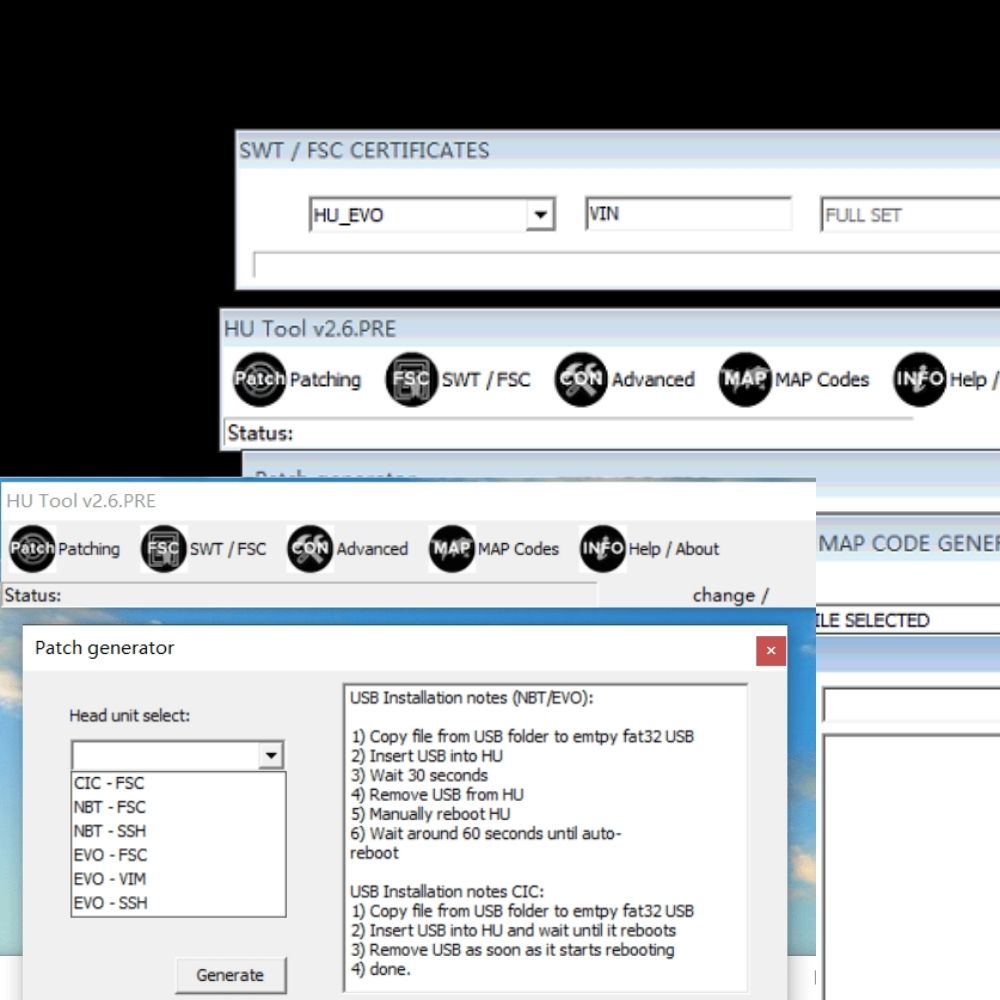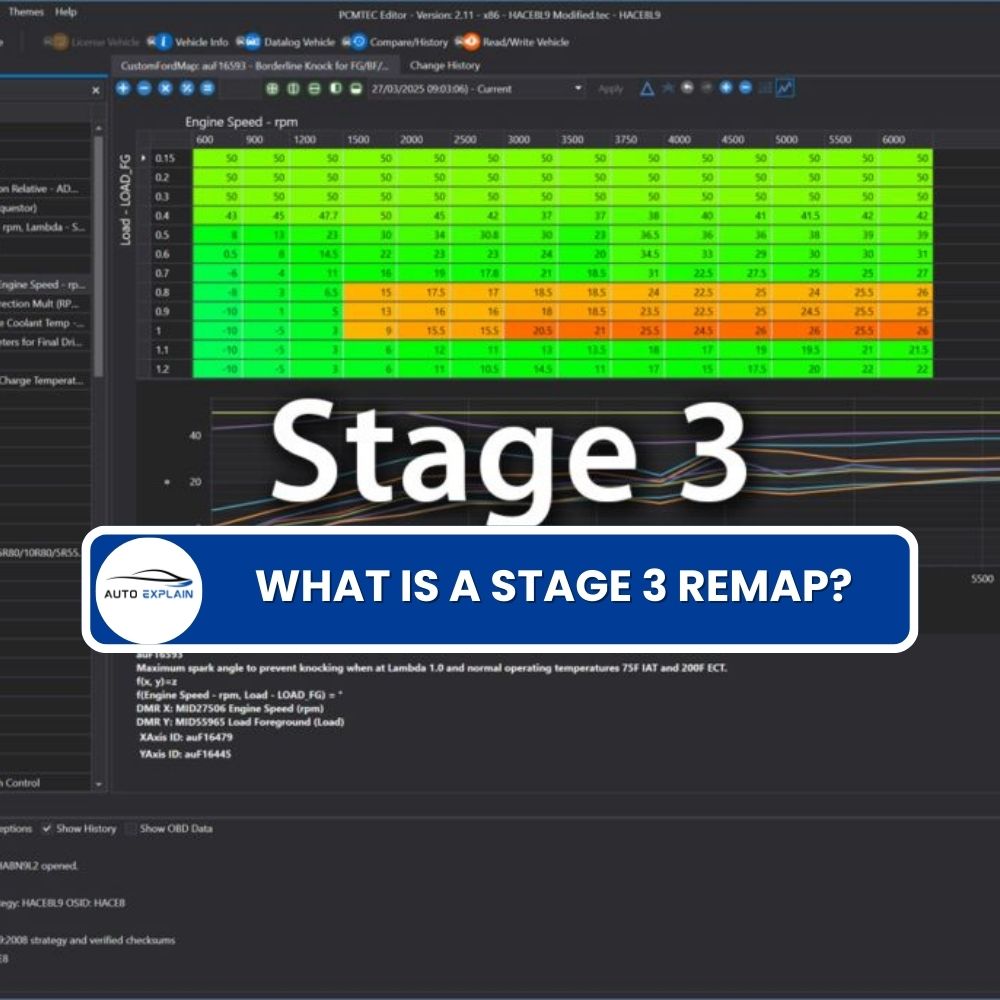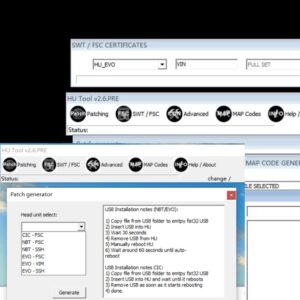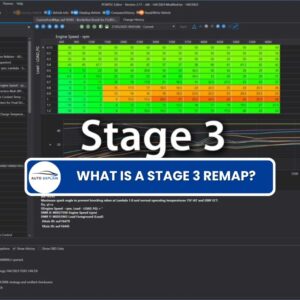

Audi DTC 16352:014 – What Does It Mean and How To Fix It?
Is Audi DTC 16352:014 causing you headaches? The Audi DTC 16352:014 error code indicates an electrical fault within the ABS control module, potentially stemming from defective wiring or a faulty module; however, AutoExplain can provide you with remote diagnostic and programming services to resolve this issue efficiently.
Table of Contents
Toggle1. What Does Audi DTC 16352 014 Really Mean?
Audi DTC 16352 014, specifically referring to “Control Module – Electrical Error,” signifies a fault within the ABS (Anti-lock Braking System) control module’s electrical circuits. This indicates that the module isn’t receiving the correct voltage, experiencing internal short circuits, or has a general electrical malfunction. This code may appear as a standalone issue or alongside other ABS-related fault codes, potentially affecting the vehicle’s braking performance and safety systems.
Breaking Down the Code
- 16352: This is the primary Diagnostic Trouble Code (DTC) indicating a problem with the ABS control module.
- 014: This subcode further specifies the nature of the fault as an “Electrical Error.”
Symptoms You Might Notice
- ABS Warning Light: The most obvious sign is the ABS warning light illuminating on the dashboard.
- ESP/Traction Control Light: The Electronic Stability Program (ESP) and Traction Control System often rely on the ABS module, so their warning lights might also illuminate.
- Reduced Braking Performance: In some cases, you might experience a change in braking feel or responsiveness.
- Other DTCs: Additional diagnostic trouble codes related to ABS or other systems that communicate with the ABS module could be present.
2. What Causes the Audi DTC 16352:014 Error?
The Audi DTC 16352:014 error can stem from a range of electrical and module-related issues; however, a thorough diagnosis can help pinpoint the exact cause.
Potential Root Causes
- Faulty ABS Control Module: The module itself may have internal electrical failures.
- Wiring Issues: Damaged, corroded, or loose wiring to the ABS control module.
- Poor Connections: Corroded or loose connectors at the ABS module or related components.
- Voltage Problems: Under-voltage or over-voltage conditions affecting the module.
- Grounding Issues: Poor grounding of the ABS control module or associated circuits.
- Software Problems: In rare cases, software corruption within the ABS module can trigger this code.
External Factors
- Environmental Conditions: Moisture, salt, and extreme temperatures can accelerate corrosion in wiring and connectors.
- Physical Damage: Accidents or impacts can damage the ABS module or its wiring.
- Electrical Surges: Voltage spikes in the electrical system can damage sensitive components within the module.
3. How To Diagnose Audi DTC 16352:014
To diagnose Audi DTC 16352:014, follow a systematic approach to identify the root cause of the electrical error within the ABS control module. Here are detailed steps:
Step-by-Step Diagnostic Process
- Initial Scan: Use a diagnostic scan tool (like VCDS) to confirm the presence of DTC 16352:014 and any other related codes. Record all codes for future reference.
- Visual Inspection: Examine the ABS control module and its wiring harness for any visible signs of damage, corrosion, or loose connections.
- Wiring Load Test: Perform a load test on the harness at the ABS unit connector to ensure the terminals work correctly.
- Voltage Check: Use a multimeter to check the voltage at the ABS control module connector. Ensure it matches the specified voltage (usually around 12V). Test with the ignition on and off.
- Ground Check: Verify the ground connection for the ABS control module. Ensure it is clean, tight, and free from corrosion.
- Continuity Test: Check the continuity of the wiring between the ABS control module and the ECU. Look for any breaks or shorts in the wiring.
- Module Testing: If the wiring and connections appear to be in good condition, the ABS control module itself may be faulty.
- Software Check: In some cases, software corruption within the ABS module can trigger this code. Check for any available software updates for the ABS module.
Tools Needed
- Diagnostic Scan Tool (VCDS, OBD-II scanner)
- Multimeter
- Wiring Diagram for your specific Audi model
- Socket Set
- Screwdrivers
- Wire Strippers/Crimpers
- Contact Cleaner
Alt: ABS control module wiring diagram showing voltage and pinouts for diagnosing Audi DTC 16352:014
4. What Are The Common Misdiagnosis Pitfalls For Audi DTC 16352:014?
When troubleshooting Audi DTC 16352:014, avoid these common misdiagnosis pitfalls, which can lead to unnecessary repairs and wasted time.
Common Mistakes to Avoid
- Assuming the ABS Module is Always Faulty: While a faulty module is a possibility, always rule out simpler issues like wiring and connections first.
- Ignoring Related DTCs: Other DTCs can provide valuable clues about the root cause of the problem.
- Not Checking Fuses: Always check the fuses related to the ABS system. A blown fuse can sometimes trigger this code. In the original case, fuse F4 was a 20 amp fuse when it should have been a 30 amp fuse according to the manual.
- Overlooking Grounding Issues: A poor ground connection can cause a variety of electrical problems, including this DTC.
- Not Performing a Thorough Visual Inspection: Carefully inspect the wiring and connectors for any signs of damage or corrosion.
- Using Generic Scan Tools: Generic OBD-II scanners may not provide the detailed information needed to diagnose this code accurately. Use a tool like VCDS or a professional-grade scan tool.
- Skipping the Continuity Test: A break or short in the wiring can be easily missed without performing a continuity test.
- Failing to Check Voltage: Under-voltage or over-voltage conditions can damage the ABS module.
- Neglecting Software Updates: Ensure that the ABS module has the latest software version.
- Rushing the Process: Take your time and follow a systematic diagnostic procedure. Rushing can lead to mistakes and misdiagnosis.
How AutoExplain Can Help
If you’re facing challenges in diagnosing Audi DTC 16352:014, AutoExplain offers expert remote diagnostic and programming services. Our team of experienced technicians can provide you with step-by-step guidance, wiring diagrams, and troubleshooting tips to help you pinpoint the root cause of the problem quickly and accurately.
5. What Are The Solutions To Fix Audi DTC 16352:014?
To fix Audi DTC 16352:014, implement the following solutions based on the diagnostic findings to resolve the electrical error within the ABS control module.
Step-by-Step Solutions
- Repair Wiring Issues: If damaged wiring is found, repair or replace the affected sections. Ensure all connections are secure and properly insulated.
- Clean or Replace Connectors: Corroded or loose connectors should be cleaned or replaced. Use a contact cleaner to remove any corrosion.
- Correct Voltage Problems: If the voltage at the ABS control module is incorrect, investigate the charging system and battery. Correct any voltage issues before proceeding.
- Improve Grounding: Ensure the ABS control module has a good ground connection. Clean and tighten the ground connection point.
- Replace the ABS Control Module: If the ABS control module is found to be faulty, replace it with a new or refurbished unit. Ensure the replacement module is properly coded to the vehicle.
- Update Software: Check for any available software updates for the ABS control module. Update the software as needed.
- Check and Replace Fuses: Make sure that fuse F4 is the correct 30 amp fuse according to the manual. Replace if needed.
Ensuring a Lasting Repair
- Use Quality Parts: When replacing components, use high-quality parts from reputable suppliers.
- Follow Repair Manuals: Refer to the vehicle’s repair manual for specific instructions and torque specifications.
- Double-Check Connections: Ensure all connections are secure and properly seated.
- Test the System: After completing the repair, test the ABS system to ensure it is functioning correctly. Use a scan tool to clear any remaining DTCs.
6. Can You Program ABS Control Module For Audi Yourself?
While it’s technically possible to program an ABS control module for an Audi yourself, it’s generally not recommended unless you have extensive experience, specialized equipment, and access to the necessary software and vehicle data. ABS module programming requires precision and accuracy to ensure the safety and proper functioning of the braking system.
Why Professional Programming is Recommended
- Complexity: ABS module programming involves complex procedures and data manipulation.
- Specialized Equipment: You’ll need a professional-grade scan tool with programming capabilities.
- Software and Data: Access to the correct software and vehicle-specific data is essential.
- Risk of Errors: Incorrect programming can lead to serious safety issues and damage to the ABS system.
- Calibration: ABS modules often require calibration after programming to ensure proper sensor readings and system performance.
AutoExplain’s Programming Services
AutoExplain offers remote ABS control module programming services for Audi vehicles. Our experienced technicians use advanced diagnostic and programming tools to ensure the job is done correctly and efficiently.
7. How Much Does It Cost To Diagnose And Fix Audi DTC 16352:014?
The cost to diagnose and fix Audi DTC 16352:014 can vary widely depending on the root cause of the problem and the repair solution needed. Here’s a breakdown of potential costs:
Cost Factors
- Diagnostic Fee: A professional diagnostic scan typically costs between $75 and $150.
- Wiring and Connection Repairs: Repairing damaged wiring or replacing connectors can range from $50 to $300, depending on the extent of the damage and labor involved.
- ABS Control Module Replacement: Replacing the ABS control module can be a significant expense, ranging from $500 to $1500 or more, depending on the source of the module (new, refurbished, or used) and the labor costs.
- Software Updates: Software updates for the ABS module may cost between $50 and $200, depending on the shop and the update required.
- Programming Costs: If the ABS control module needs to be programmed, this can add another $100 to $300 to the total cost.
AutoExplain’s Cost-Effective Solutions
AutoExplain offers remote diagnostic and programming services that can save you time and money compared to traditional repair shops. Our remote services eliminate the need for costly on-site visits and reduce labor expenses.
8. How Does A Faulty ABS Module Affect Driving Safety?
A faulty ABS (Anti-lock Braking System) module can significantly compromise driving safety, as it directly impacts the vehicle’s ability to brake effectively and maintain control in critical situations.
Compromised Safety
- Loss of ABS Functionality: The most immediate consequence is the loss of ABS functionality, which prevents the wheels from locking up during hard braking. This can lead to skidding, reduced steering control, and increased stopping distances.
- Reduced Braking Performance: A faulty ABS module can also affect overall braking performance, leading to longer stopping distances and a less responsive braking feel.
- ESP and Traction Control Issues: The Electronic Stability Program (ESP) and Traction Control System rely on the ABS module to function correctly. A faulty module can disable or impair these systems, reducing the vehicle’s ability to maintain stability and prevent wheel spin.
- Erratic Braking: In some cases, a faulty ABS module can cause erratic braking behavior, such as uneven braking force between wheels or unexpected activation of the ABS system.
- Increased Risk of Accidents: The combination of these factors can significantly increase the risk of accidents, especially in adverse weather conditions or emergency braking situations.
AutoExplain: Ensuring Your Safety
At AutoExplain, we understand the importance of a properly functioning ABS system. Our remote diagnostic and programming services can help you quickly identify and resolve ABS module issues, ensuring your vehicle’s braking system is operating at its best.
9. Can A Bad ABS Module Affect Traction Control?
Yes, a bad ABS (Anti-lock Braking System) module can directly affect traction control, as these two systems are closely integrated and rely on shared sensors and components.
Interconnected Systems
- Shared Sensors: Both ABS and traction control systems use wheel speed sensors to monitor wheel rotation. A faulty ABS module can misinterpret or fail to receive these signals, leading to traction control malfunctions.
- Integrated Control: The ABS module often serves as the central control unit for both systems. If the module is faulty, it can disrupt the communication and coordination between ABS and traction control.
- Reduced Functionality: A bad ABS module can disable or impair traction control, reducing the vehicle’s ability to prevent wheel spin and maintain grip on slippery surfaces.
- Erratic Behavior: In some cases, a faulty ABS module can cause erratic traction control behavior, such as unexpected activation or deactivation of the system.
AutoExplain’s Comprehensive Solutions
AutoExplain offers comprehensive diagnostic and repair services for ABS and traction control systems. Our experienced technicians can quickly identify the root cause of any issues and provide effective solutions to restore your vehicle’s safety and performance.
10. What Other Issues Might Occur Along With Audi DTC 16352 014?
Along with Audi DTC 16352 014, several other issues may occur, either as a direct result of the ABS module fault or as related symptoms.
Potential Concurrent Issues
- Other ABS Codes: You may encounter additional ABS-related DTCs, such as codes for wheel speed sensors, hydraulic pump issues, or communication errors.
- Brake Light Issues: A faulty ABS module can sometimes affect the brake light system, causing the brake lights to stay on or not function properly.
- Instrument Cluster Warnings: The instrument cluster may display warning messages related to ABS, ESP, or traction control.
- Cruise Control Problems: In some cases, a faulty ABS module can interfere with the cruise control system, preventing it from engaging or functioning correctly.
- Transmission Issues: The ABS module communicates with the transmission control module (TCM) in some vehicles. A faulty ABS module can cause transmission-related issues, such as shifting problems or error codes.
- Steering Problems: The ABS module also communicates with the steering system. A faulty ABS module can cause steering-related issues.
AutoExplain’s Holistic Approach
AutoExplain takes a holistic approach to diagnosing and repairing automotive issues. Our technicians consider the entire vehicle system when troubleshooting DTCs, ensuring that all related problems are identified and addressed for a comprehensive and lasting solution.
Facing Audi DTC 16352:014 and need expert help? Contact AutoExplain via WhatsApp at +1(936)2896695 or email at [email protected] for remote diagnostic, programming, and technical support. Our experienced team is ready to assist you with efficient and reliable solutions. Visit our website at AutoExplain. Our office is located at 1500 N Grant ST Sten Denver, CO 80203.


BMW FSC Codes Explained: Full FSC Code List for F-Series

What is a Stage 3 Remap?

The Best Car Tuning Software in 2026: A Comprehensive Guide for Professionals








